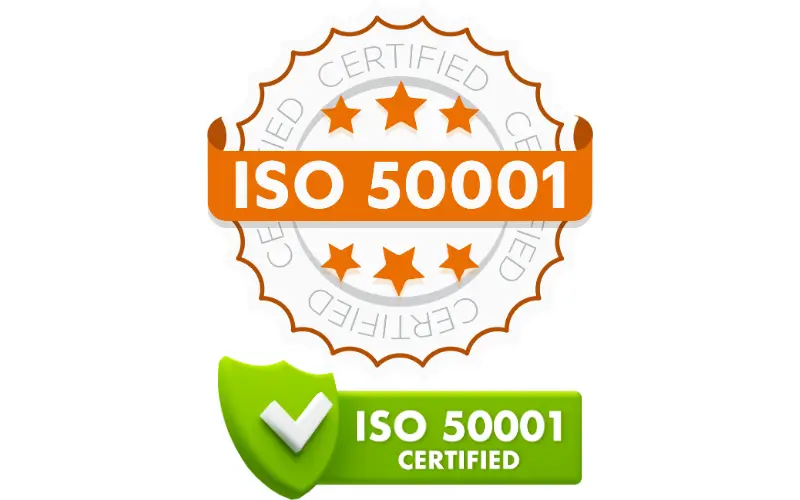Energy audits are no longer optional for businesses aiming to stay competitive, compliant, and cost-efficient. From identifying wasted energy to uncovering hidden cost savings, the right audit team can drive measurable improvements in both operational efficiency and sustainability performance.
But here’s the dilemma many business leaders face: should you hire and train your own in-house energy team, or outsource the work to external specialists? The choice affects more than your budget — it shapes how quickly you can act on audit findings, the depth of insights you receive, and how well energy initiatives align with your long-term business strategy.
In this guide, we’ll break down the pros, cons, and practical considerations for each approach — plus explore a third option that blends the best of both worlds. By the end, you’ll have a clear, data-driven framework to make the right decision for your organization.
Understanding Energy Audits
What is an Energy Audit?
An energy audit is a systematic process of examining how a facility uses energy, identifying where it is wasted, and recommending measures to improve efficiency. It’s essentially a health check-up for your building’s energy systems — covering everything from lighting and HVAC to production machinery and insulation.
Think of it as both a diagnostic and a roadmap:
- Diagnostic: Uncovers where energy is being lost.
- Roadmap: Provides actionable strategies to reduce consumption, cut costs, and lower carbon emissions.
Types of Energy Audits
While the term “energy audit” is broad, there are several recognized types depending on the depth and purpose of the assessment:
- Walk-Through Audit (Preliminary Audit)
- Quick assessment to identify obvious inefficiencies.
- Low cost and minimal disruption.
- Ideal for initial screening before a more detailed audit.
- Investment-Grade Audit (Detailed Audit)
- Comprehensive analysis with financial calculations for ROI and payback periods.
- Involves extensive data collection and on-site measurements.
- Suitable for large-scale retrofits or major investment decisions.
- Monitoring-Based or Continuous Audit
- Uses sensors, IoT devices, and software to track energy performance in real-time.
- Allows for continuous improvement and quick intervention.
Why Businesses Conduct Energy Audits
Energy audits aren’t just about “being green” — they have tangible business benefits:
- Cost Reduction – Identifies energy waste that can translate to significant annual savings.
- Compliance & Certification – Meets regulatory requirements and supports certifications like ISO 50001 or LEED.
- Operational Efficiency – Optimizes equipment usage and extends asset life.
- Sustainability Goals – Reduces greenhouse gas emissions and supports ESG reporting.
- Competitive Advantage – Demonstrates environmental responsibility to customers and stakeholders.
If the energy audit is the what and why, the next step is to look at how you structure the team that carries it out — which is where the in-house vs. outsourcing decision comes in.
Option 1 – Building an In-House Energy Audit Team
Creating your own in-house energy audit team means hiring, training, and equipping staff who work exclusively for your organization. This approach offers significant advantages — but also comes with challenges you’ll need to manage.
Advantages of an In-House Energy Audit Team
1. Greater Control and Responsiveness
With an internal team, you decide what gets audited, when, and how. Scheduling is easier, and urgent assessments can be handled immediately without waiting for an external vendor.
2. Deep Organizational Knowledge
In-house auditors understand your facility’s processes, culture, and pain points. They can tailor recommendations to your unique operational realities instead of using a one-size-fits-all approach.
3. Cultural and Strategic Alignment
Your team is immersed in your company’s mission, sustainability goals, and long-term vision, which often leads to solutions that are more aligned with corporate strategy.
Challenges of an In-House Energy Audit Team
1. High Upfront and Ongoing Costs
You’ll need to budget for salaries, benefits, training, certifications, and equipment. Specialized tools like thermal imaging cameras, energy monitoring software, and data loggers aren’t cheap.
2. Talent Acquisition and Retention
Finding skilled energy auditors can be difficult. Once you have them, retaining top talent means offering competitive packages and career growth opportunities.
3. Skill Gaps and Continuous Training Needs
Energy standards, technology, and best practices evolve quickly. Your team will require ongoing education to stay up to date with regulations and emerging solutions.
4. Scalability Issues
If your audit needs vary seasonally or project-by-project, a full-time team may be underutilized during low-demand periods.
When an In-House Team Makes Sense
An internal energy audit department may be the best fit if:
- You operate large facilities with complex systems.
- You need frequent or continuous audits.
- Energy performance is directly tied to your competitive advantage.
- You have a dedicated sustainability budget and long-term commitment to energy efficiency.
If this approach sounds expensive or resource-heavy, the alternative is outsourcing the energy audit function — which can offer flexibility and access to specialized expertise without the overhead.
Option 2 – Outsourcing the Energy Audit Function
Outsourcing your energy audit means hiring an external specialist or consultancy to conduct assessments, provide reports, and recommend efficiency measures. This approach can be highly cost-effective — especially for organizations that don’t require full-time energy auditing staff.
Advantages of Outsourcing
1. Cost Flexibility
You pay only for the audits you need, when you need them. This eliminates the fixed costs of salaries, benefits, and in-house equipment, replacing them with a predictable service fee or project-based cost.
2. Access to Specialized Expertise
External auditors typically work with multiple clients across different industries, bringing broader experience and specialized certifications. They often have access to advanced diagnostic tools, software, and testing equipment without you needing to invest in them.
3. Scalability and Adaptability
Outsourcing allows you to scale audit activities up or down depending on operational changes, new facilities, or specific compliance deadlines.
4. Reduced Administrative Burden
No need to handle recruitment, onboarding, or continuous training — the provider takes care of staffing and skill development.
Drawbacks of Outsourcing
1. Less Control Over Process and Priorities
You may need to adapt to the vendor’s schedule and working methods, which can create delays or process mismatches.
2. Potential Misalignment with Company Culture
External auditors may lack the deep operational knowledge and cultural context of an in-house team, leading to recommendations that are technically correct but operationally impractical.
3. Vendor Reliability and Consistency Concerns
If the vendor changes staff frequently or has competing client demands, consistency in audit quality can suffer.
When Outsourcing Makes Sense
Outsourcing is a strong choice if:
- Your organization performs energy audits infrequently (e.g., annually or biannually).
- You lack the budget or capacity for a permanent audit department.
- You want to tap into the latest technologies without heavy capital investment.
- Your facilities require specialized expertise not available internally.
The decision isn’t always black-and-white, though. Many organizations are now using a hybrid model — blending the advantages of both in-house and outsourced teams.
Option 3 – A Hybrid Model
A hybrid energy audit model combines the best of both worlds — maintaining a core in-house team for ongoing oversight and quick response, while leveraging outsourced experts for specialized tasks or peak demand periods.
What Is a Hybrid Approach?
In this setup, your internal energy team handles routine audits, data collection, and implementation monitoring, while external consultants provide deep-dive audits, advanced technical assessments, or fill temporary staffing gaps.
Benefits of a Hybrid Model
1. Balanced Control and Flexibility
You retain internal control for day-to-day energy management, but can flexibly scale expertise and resources as needed through outsourcing.
2. Cost Optimization
By using external providers only when specialized skills or extra capacity are required, you avoid the full cost of a large in-house team while ensuring expertise is available.
3. Accelerated Capacity Building
Working alongside seasoned consultants helps your internal team gain knowledge and develop skills faster through collaboration and on-the-job training.
4. Improved Risk Management
Diversifying your audit resources reduces risk from staff turnover or vendor dependency.
Implementing a Hybrid Model: Best Practices
- Clearly define the scope and responsibilities of internal and external teams to avoid overlap.
- Establish regular communication channels and shared reporting standards.
- Use outsourcing partners with proven industry expertise and strong cultural fit.
- Monitor costs closely and review vendor performance regularly.
- Invest in internal training programs to gradually build your own capabilities.
Decision Framework: How to Choose Between Outsourcing, In-House, or Hybrid Energy Audit Teams
Choosing the right energy audit team model depends on multiple factors unique to your organization. This framework will help you evaluate your options based on key criteria.
Key Factors to Evaluate
1. Audit Frequency and Volume
- Frequent, ongoing audits suggest building an in-house team.
- Sporadic or one-off audits favor outsourcing.
- Variable needs may benefit from a hybrid approach.
2. Budget and Capital Availability
- Limited budget and desire to avoid capital expenditures lean toward outsourcing.
- Sufficient budget for salaries, training, and equipment supports in-house.
- Hybrid can optimize budget by mixing fixed and variable costs.
3. Internal Skills and Training Capacity
- Existing expertise and training programs favor in-house.
- Lack of skilled staff points to outsourcing.
- Hybrid helps bridge skill gaps while building capacity.
4. Access to Tools and Technologies
- In-house teams require investment in advanced tools.
- Outsourcing grants access to the latest equipment without upfront costs.
- Hybrid balances owned tools with outsourced technology access.
5. Strategic Importance and Compliance
- If energy audits are core to your competitive advantage or compliance demands, in-house may be preferable.
- For less critical or compliance-driven needs, outsourcing is sufficient.
Decision Matrix Example
| Factor | Outsource | In-House | Hybrid |
| Audit Frequency | Low to moderate | High | Variable |
| Budget | Limited | High | Moderate |
| Skill Availability | Low | High | Moderate |
| Tool Access | Vendor provides | Company-owned | Combination |
| Strategic Importance | Low to moderate | High | Moderate |
| Scalability | High | Low to moderate | High |
Example Scenarios
- Small Business with limited audits and budget: Outsource to expert providers.
- Large Industrial Facility with complex, frequent audits: Build a dedicated in-house team.
- Medium-Sized Company with fluctuating needs: Use a hybrid model with a lean in-house team plus consultants.
Real-World Examples: How Different Organizations Choose Their Energy Audit Teams
Understanding theoretical pros and cons is helpful, but seeing how actual companies make this choice provides practical insight. Below are three example scenarios illustrating how businesses of varying sizes and needs approach the decision.
Small Organization Case: Outsourcing for Flexibility and Cost Savings
A regional manufacturing company with limited budget and infrequent audit needs decided to outsource energy audits to a certified consulting firm. This allowed them to:
- Avoid high upfront investment in staff and equipment.
- Access specialized expertise for compliance with local energy regulations.
- Scale audit frequency easily based on operational changes.
The outsourced provider delivered detailed reports with actionable recommendations, and the company used internal maintenance staff to implement basic improvements. This model saved money while meeting all regulatory requirements.
Large Enterprise Case: Building an In-House Team for Strategic Advantage
A multinational food processing company invested in an in-house energy audit team integrated with its sustainability division. The team:
- Conducted continuous energy performance monitoring across multiple plants.
- Coordinated closely with operations to implement real-time efficiency improvements.
- Led training programs for facility managers on energy best practices.
- Developed long-term projects aligned with corporate ESG goals.
While the upfront costs were substantial, the company saw consistent energy savings, reduced downtime, and a stronger competitive position in green markets.
Hybrid Model in Action: Combining Internal Oversight with External Expertise
A mid-sized commercial real estate firm employs a small in-house energy manager who conducts routine energy audits and manages ongoing energy performance. For more complex projects like major retrofits or compliance audits, the firm contracts specialized energy consultants.
This approach:
- Keeps day-to-day costs manageable.
- Leverages external expertise without losing internal control.
- Facilitates staff development through collaboration with consultants.
The hybrid model allowed the company to balance cost efficiency with high-quality energy management.
Conclusion
Deciding whether to outsource your energy audit team or build one in-house is a strategic choice with significant operational and financial implications.
An in-house team offers unmatched control, cultural alignment, and the ability to integrate audits deeply into your company’s daily operations — but it requires substantial upfront investment, ongoing training, and dedicated resources.
On the other hand, outsourcing provides flexibility, access to specialized expertise, and cost predictability, making it ideal for organizations with less frequent audit needs or limited budgets. However, it may mean less direct control and potential challenges in aligning external providers with your unique operational context.
For many businesses, a hybrid model blends the best of both approaches — combining internal oversight and quick responsiveness with external specialist support when complexity or capacity demands arise.
Ultimately, the right choice depends on your organization’s size, audit frequency, budget, and strategic priorities. Use the decision framework and scenarios outlined here to make a well-informed, data-driven choice that positions your company for energy efficiency and sustainability success.
Frequently Asked Questions (FAQs)
1. What is the typical cost difference between outsourcing and building an in-house energy audit team?
Outsourcing usually involves variable costs tied to each audit, avoiding fixed salaries and equipment expenses. In-house teams require upfront investment in staff, training, and tools, making them costlier initially but potentially more economical for frequent audits.
2. Can outsourcing energy audits deliver the same quality as an in-house team?
Yes, professional outsourcing firms often have specialized expertise and advanced equipment that can match or exceed in-house capabilities. However, quality depends on vendor selection and management.
3. How frequently should a business perform energy audits?
Frequency varies by industry, regulatory requirements, and operational complexity. Many companies audit annually or biannually, while large enterprises may conduct continuous monitoring and more frequent audits.
4. What qualifications should I look for in an outsourced energy audit provider?
Look for certifications like Certified Energy Manager (CEM), experience in your industry, a proven track record, and access to modern diagnostic tools.
5. Is it possible to switch between outsourcing and in-house energy audit teams?
Yes. Many organizations start with outsourcing and gradually build internal capacity, or vice versa. A hybrid model also allows flexible transitions based on evolving needs.




